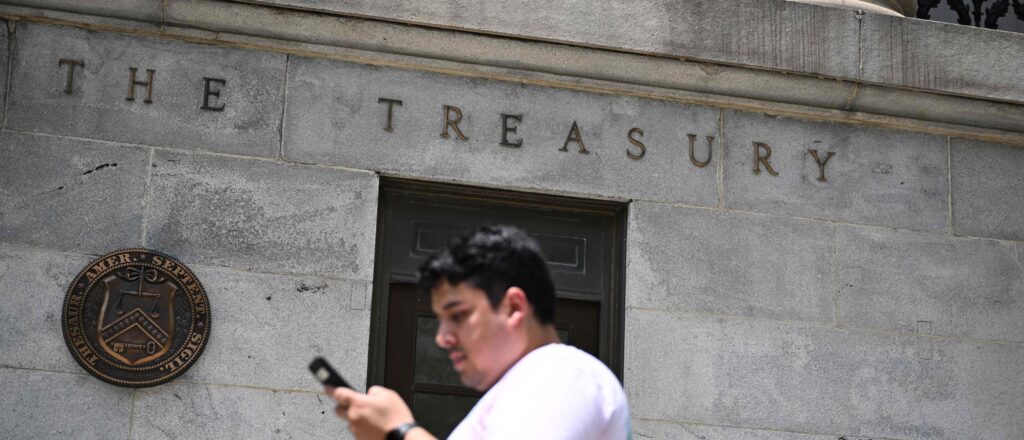U.S. financial markets are bracing for an influx of more than $1 trillion in new Treasury bills after the new debt ceiling deal threatened market stability, according to The Wall Street Journal.
The Treasury Department is seeking to increase the funds it has deposited in its checking account with the Federal Reserve after reaching a low of $50 billion toward the end of May due to the measures taken to avoid default as Congress and the White House negotiated a debt ceiling deal, the WSJ reports. Many investors are anticipating market volatility as bond issuances totaling $850 billion will be auctioned by the Treasury between now and the end of September and were put on hold due to the debt ceiling fight in Congress. (RELATED: Here’s How Much The Latest Bank Failure Will Cost The Feds — And How Americans Could Foot The Bill)
The department was forced to take “extraordinary measures” during the debt ceiling fight to keep the government from defaulting on its obligations, and officials have said they are seeking to increase the balance in the Treasury’s account to $600 billion, according to the WSJ. The large issuance will raise short-term borrowing costs, jolting the market, according to the WSJ.
Big banks will shoulder the cost of refunding the Treasury Department due to their status as primary dealers who are required to bid for Treasury bonds, the WSJ reports.
The government is also still grappling with the string of bank failures that occurred earlier this year, starting with Silicon Valley Bank, which led to the the Federal Deposit Insurance Corporation (FDIC) taking over the bank in March.
Treasury Secretary Yellen says she wouldn’t be surprised to see more bank consolidation. https://t.co/PNmENw1SXt pic.twitter.com/VOLYsvYhYY
— CNBC (@CNBC) June 7, 2023
Congress has focused on the threat of bank failures, most recently proposing bipartisan legislation to punish failed bank executives, called the Failed Bank Executives Clawback Act. The act also aims to increase the amount insured under the FDIC to include larger banks.
Some analysts are more confident in the market. “Anything that’s a one-off, complicated arcane monetary-policy plumbing issue gets resolved rather quickly,” said Marko Papic of the Clocktower Group, according to the WSJ. Those confident in the market see the new $1 trillion issuance of Treasury’s as a necessary function that the Treasury must undertake to stabilize the market and money supply.
All content created by the Daily Caller News Foundation, an independent and nonpartisan newswire service, is available without charge to any legitimate news publisher that can provide a large audience. All republished articles must include our logo, our reporter’s byline and their DCNF affiliation. For any questions about our guidelines or partnering with us, please contact licensing@dailycallernewsfoundation.org.


